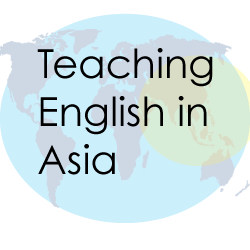Marguerite: Novice Language Teacher
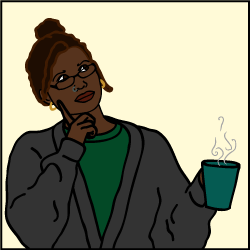 Name: Marguerite Miller
Name: Marguerite Miller
Age: 28
Academic background: Marguerite has a Bachelor of Arts and a Bachelor of Education. She completed a double major in French and Spanish; her studies focused on French literature. Marguerite did an after-degree program for her Education degree.
Teaching experience: Since graduating from university three years ago, Marguerite has been teaching at the senior high school level (grade 10-12). All of her teaching experience has been in the French classroom.
Other background info: Marguerite is from an Anglophone family and began to study foreign languages at the university level. She spent one year in France during university, studying the French language and culture. Marguerite is interested in technology and is always trying to stay on top of the newest developments.
Current teaching experience: Marguerite is the only language teacher at her school. The school is expanding it’s language options for this school year, now offering Spanish courses as well. This will be Marguerite’s first opportunity o teach Spanish.
Marguerite's Reflections
Reflection |
Timeline |
Summary |
| Reflection 1: New school year, new challenges! | First week of the school year (early September) |
Marguerite describes her new assignments along with the new challenges she is facing. |
| Reflection 2: Third Year's a charm! | One month into the school year (early October) | After three years of teaching Marguerite feels as though she is getting a handle on her classes. |
| Reflection 3: Culture Conundrum | End of term (December of school year) | Marguerite starts to feel caught up but faces new issues when creating a project and trying to assess culture. |
Read through Marguerite's reflections to find out more about some of the challenges she is facing in the classroom. Click on any of the highlighted areas to find out more about that issue from Dr. B!
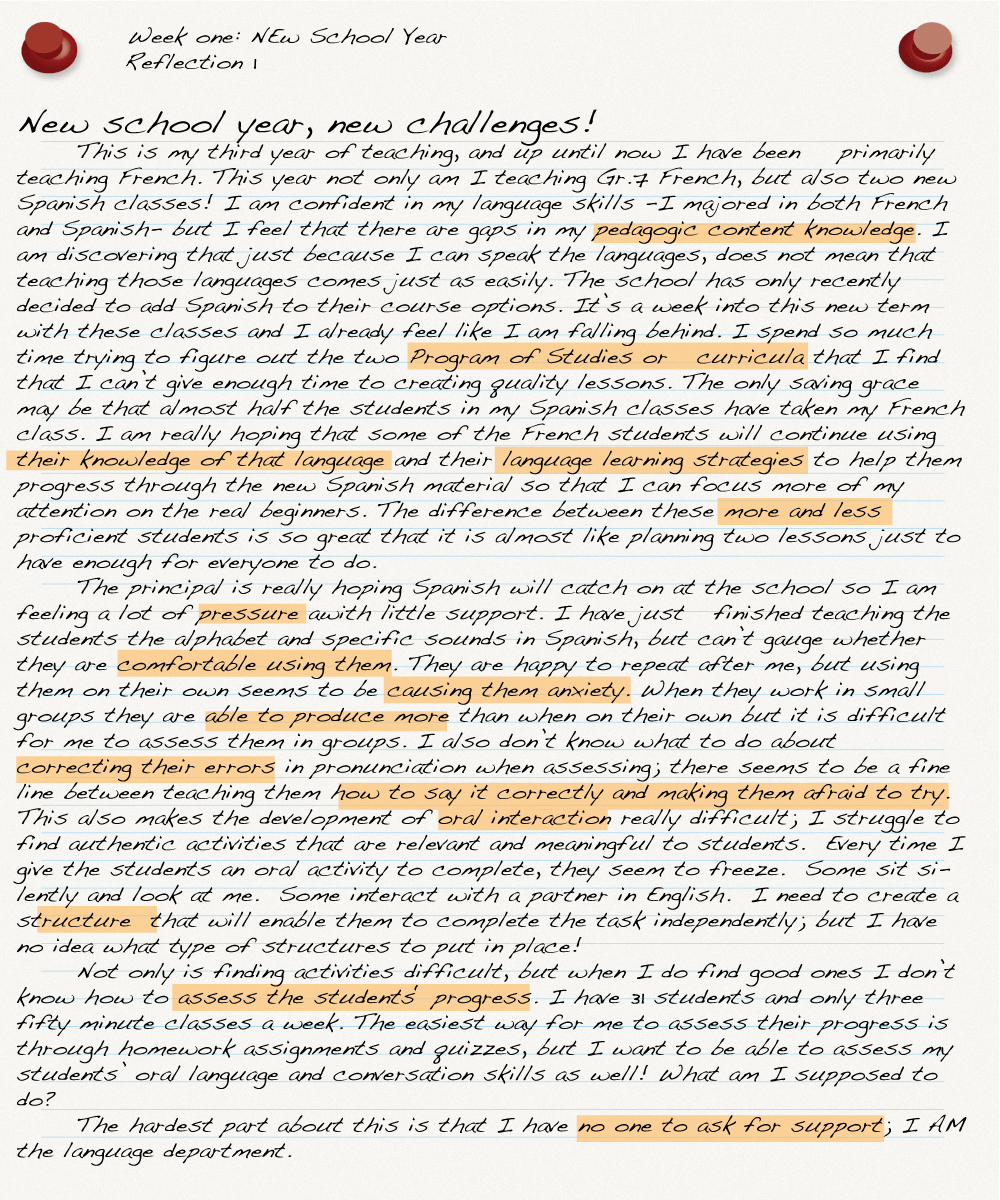

1. Although her language skills are strong, Marguerite feels as though there are gaps in her pedagogic knowledge. What skills or abilities might she be missing?
2. Marguerite hopes that her French students will use their language skills to progress in Spanish; what do you think and why?
3. Marguerite mentions that her students may use their language learning strategies. What might these strategies be? What language learning strategies did you use when you first learned a second language? Where do language learning strategies fit into B-SLIM?
4. Marguerite mentions that there is a big difference between the more and less proficient students in her class. What strategies could she use to differentiate for these students?
5. What counts as evidence of learning? How could Marguerite assess whether her students are ready to move on to the next level of difficulty?
6. Marguerite is worried about correcting errors; when should errors be recast or repaired? How often should this be done ? What kinds of error correction could she use?
7. Marguerite feels alone in her practice; to whom might she turn for support?
back to top
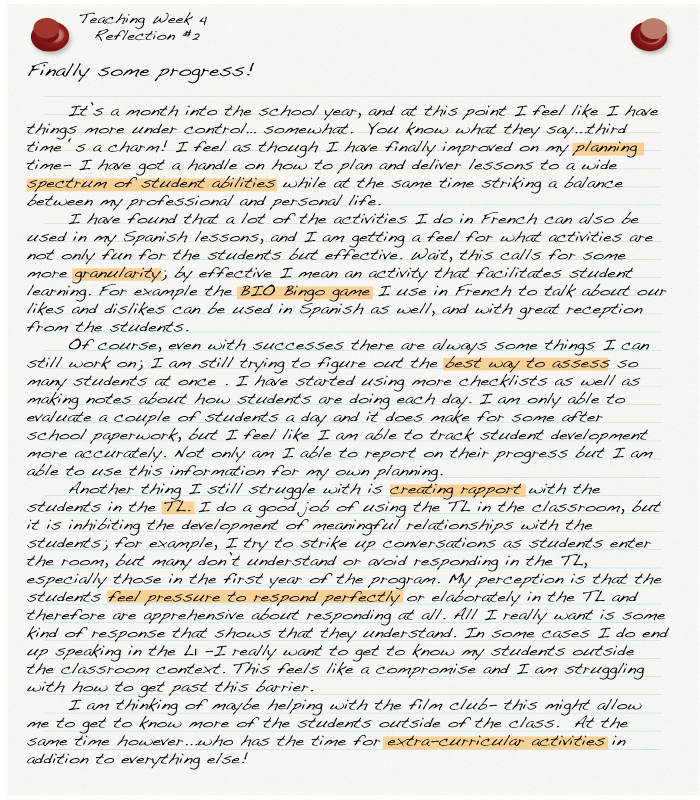

-
Marguerite’s planning time has decreased; why do you think this is? How could she have become more efficient?
-
Marguerite uses the same games in her Spanish and French classes; can you think of some games in your repertoire that could be used in different language classes?
-
Marguerite is using checklists to assess student progress; what kinds of things could she have on her checklists? Where would that fit into the triangulation model?
-
How could Marguerite decrease student anxiety about speaking in the TL? What routines could she create? How could she address this in class?
-
Marguerite is the only language teacher in the school; would observing other teachers’ classes help her? What could she learn?
back to top
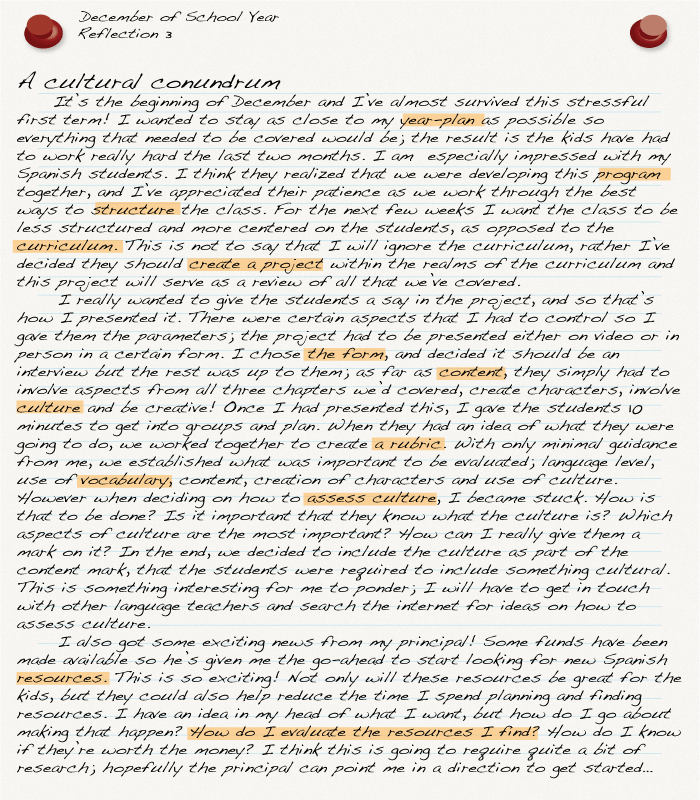

-
Marguerite had a plan for the yearly program but has had problems sticking to it. What kinds of issues might be interfering with her plans?
-
How can Marguerite ensure that her project covers certain aspects of the curriculum? What kinds of outcomes might best be covered through such a project?
-
Marguerite is trying to give the students as much freedom as possible in this project; how might this affect the students’ motivation?
-
Why is it a good idea for Marguerite to include the students in the creation of the project rubric?
-
Marguerite and the students realize that there are some complications surrounding the assessment of culture; they solved this problem by including it in the content section of the assessment. How else might the problem have been solved?
-
Marguerite has the opportunity to look for new Spanish resources; what aspects are important in the choice of effective classroom?
